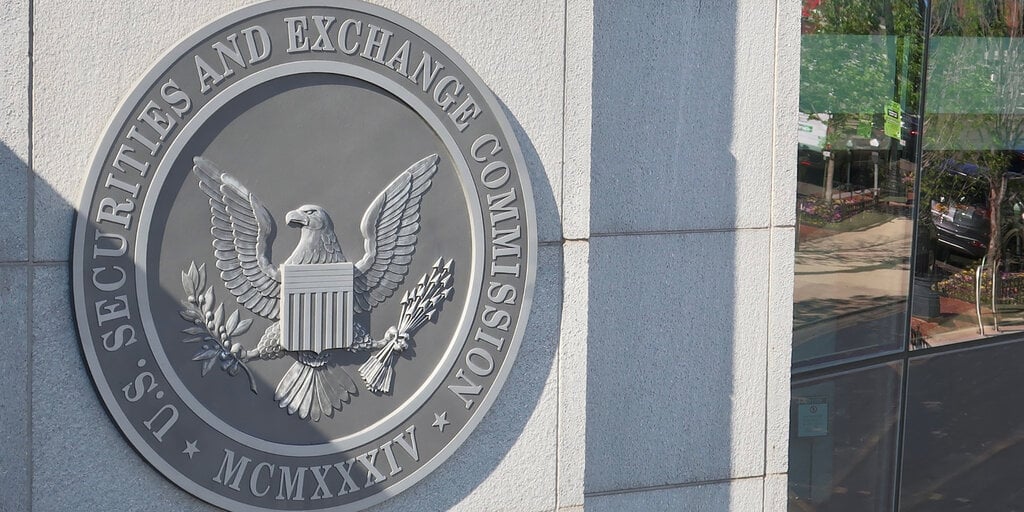Coinbase once again spoke out Monday against the U.S. Securities and Exchange Commission’s (SEC) attempt to broaden the bureaucratic definition of the word “exchange,” which, if successful, would place the DeFi ecosystem firmly under the regulator’s purview.
In an eight-page document comment In a filing with the SEC on Monday, Coinbase Chief Legal Officer Paul Grewal criticized the potential rule change as “arbitrary” and “irrational” in several respects, and urged the agency to “abandon its efforts” to apply the proposed rule to decentralized exchanges (DEX).
Coinbase’s fundamental argument against the change is the SEC’s continued refusal to acknowledge that DEXs — which are run by automated on-chain software (aka smart contracts) with little to no human management — are inherently incapable of complying with the rules and standards designed for traditional securities exchanges like the New York Stock Exchange.
“DEXs cannot comply with the registration and disclosure requirements designed for traditional financial exchanges run by centralized companies,” Grewal wrote. “And even if DEXs could somehow comply with existing registration and disclosure rules, the Commission fails to explain how SEC-registered DEXs could facilitate digital asset trading.”
Today @coinbase submitted another set of concerns regarding @SECgov The SEC’s proposal to expand the definition of “exchange” is a matter of serious concern. In short, the SEC’s proposal lacks critical analysis, relies on irrational assumptions, fails to demonstrate a problem requiring regulation,…
— paulgrewal.eth (@iampaulgrewal) August 12, 2024
Because of these apparent tensions, Coinbase hinted in its letter to the SEC today that the agency may well attempt to implicitly ban DEXs, without saying so.
“The SEC enjoys robust public engagement and will consider all comments submitted during the open comment period. We generally respond to comments received as part of the development of final rulemaking, not in advance,” an agency spokesperson said. Decrypt following the initial publication of this story.
Coinbase also accused the SEC of failing to conduct a proper cost-benefit analysis of the proposed rule change. This is because the regulator only stated in general terms that it would regulate exchanges that deal in “crypto asset securities,” without defining which types of digital assets constitute securities and which do not.
The SEC’s longstanding refusal to draw such a line—between cryptocurrencies it considers securities and those it does not—remains one of the crypto industry’s main grievances with the agency. Instead of providing such a framework, the SEC has chosen to pursue cryptocurrency projects that it claims constitute illegal securities offerings, one by one.
The regulator has even appeared to change its mind on some crypto assets in recent months. For over a year, for example, the SEC has reportedly secretly considered Ethereum became a security. Then, in May, the agency abruptly reversed course, approving Ethereum ETF spot trading on Wall Street.
Given that the SEC has not clearly defined which cryptocurrencies it considers to be securities, Coinbase wrote today, it cannot have properly calculated an accurate cost-benefit analysis determining how much financial activity would fall under its purview if DEXs were regulated as securities exchanges.
“The SEC cannot rationally make these calculations without a single, stable view of which digital assets are subject to securities laws,” Grewal wrote.
Thus, the SEC “must withdraw the proposal, gather the information necessary to conduct a rational cost-benefit analysis, attempt to correct its existing flawed assumptions and analyses, and allow a new round of comments on any modified proposal the Commission may advance,” Coinbase said.
In 2023, when the SEC first introduced its proposal to amend the definition of “exchange,” agency Chairman Gary Gensler made clear his position that most crypto tokens, and therefore most DEXs, were operating in flagrant violation of existing securities laws.
“As I’ve said many times, the vast majority of crypto tokens are securities,” Gensler said at the time. “Calling yourself a DeFi platform is not an excuse to defy securities laws.”
Since then, crypto companies and projects have sought, in a long back-and-forth, to prevent the rule change from being adopted, seeing it as an existential threat to DeFi.
Last month, Uniswap Labs, the company behind a leading DEX that was threat following a lawsuit filed by the SEC in April, sent a letter to the regulator saying it must back down attempts to regulate DeFi. This follows a shock decision by the US Supreme Court decision which has significantly limited the ability of federal agencies to define the limits of their regulatory powers themselves.
Edited by Andrew Hayward
Editor’s Note: This article was updated after publication to include SEC commentary and additional context.
Daily report Newsletter
Start each day with today’s top stories, plus original features, a podcast, videos and more.




